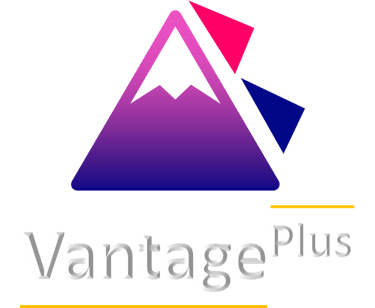
Lead Generation Challenges for Small Businesses and How to Overcome Them
Discover effective strategies to tackle the top 5 lead generation challenges faced by small businesses. Learn how to enhance online visibility, increase engagement rates, and boost conversion by up to 30% with our professional insights
LEAD GENERATION
Bashaar Ahmed
2/20/202415 min lesen
Unlocking the Potential: Mastering Lead Generation for Small Business Growth
An era of intense competition and expanding markets has presented an array of opportunities and challenges to small businesses. As such, effective lead generation strategies have become more vital than ever in facilitating business growth and ensuring survival. Not only are these strategies essential for attracting prospective customers, but they also serve to build brand awareness and foster customer loyalty.
Exploiting digital technology, businesses are now able to explore innovative lead generation strategies, shaping the landscape of online marketing and redefining business-customer interactions. For example, the journey that once started with a simple business card now often begins with a sophisticated digital marketing campaign. From targeted advertising to personalized email marketing, businesses are leveraging technology to engage prospects and turn leads into loyal customers. For reference, SalesForce, a global leader in CRM solutions, offers an excellent guide on lead generation in the digital age (https://www.salesforce.com/products/marketing-cloud/best-practices/how-lead-generation-works/). This wealth of technology and availability of resources offers small businesses the potential to compete with larger enterprises and carve their own success stories in their respective markets.
Understanding Lead Generation Challenges for Small Businesses
Lead generation stands as one of the most challenging aspects for small businesses in today's highly competitive market. The struggle to generate a steady stream of high-quality leads is felt by many enterprises looking to grow their customer base and increase revenue. While numerous techniques exist to drive lead generation, the process often becomes entangled in a web of complexities. The diversification of consumer behavior, the technicalities of the digital marketing landscape, and the hurdles of budget constraints often create a challenging environment for small businesses.
Among these, understanding and implementing effective lead conversion techniques often prove to be a mammoth task. A study conducted by HubSpot revealed that while 74% of companies recognize converting leads into customers as their top priority, only about 22% are satisfied with their conversion rates. Lead conversion techniques require not only strategic planning and implementation, but also continuous monitoring, measurement, and optimization. These can be difficult to navigate for small businesses that may lack the necessary resources or expertise. This demonstrates the crucial need for small businesses to overcome lead generation challenges and unlock their full growth potential.


Identifying Common Obstacles in Lead Generation
Lead generation, the lifeblood of small businesses striving for growth, unfortunately often presents various hurdles. These barriers, while unique to each business's ecosystem, have several common threads tying them together. One of the most prevalent challenges is identifying the right target audience. Without a clear idea of who the potential customers are, businesses tend to misspend their marketing budgets, leading to inferior ROI. In fact, according to Salesforce's "State of the Connected Customer" report, 66% of consumers stated that they are likely to switch brands if they feel treated like a statistic rather than an individual. This underscores the necessity of personalized targeting - a daunting task without proper Digital Marketing Solutions.
Understanding the buyer's journey is another common obstacle. Today's consumers are informed and have a multitude of choices at their fingertips, which directly impacts their buying journey. Deciphering this journey and knowing when to pitch your product to the potential customer has become anything but straightforward. Businesses often find it challenging to strike a balance between being too aggressive and too passive with their marketing approach. Accenture's study titled, "Service is the New Sales," highlights that 91% of consumers are more likely to shop with brands who recognize and remember them, providing relevant offers and recommendations. Digital Marketing Solutions like CRM tools can play a pivotal role in overcoming these complications.
The Impact of Digital Marketing Evolution on Small Businesses
The evolution of digital marketing has greatly impacted small businesses, primarily in the realm of lead generation. SEO best practices, for instance, have transformed from simply stacking keywords on a webpage to a complex interplay of keyword relevance, website quality, mobile-friendliness, social signals, and local search factors. With search engines continually updating their algorithms, businesses are now required to stay abreast with the ever-evolving SEO landscape to ensure high visibility on search engine result pages (SERPs). This necessitates an understanding of technical details, quality content marketing and commitment to long-term results rather than short-term quick fixes.
In addition, the growing influence of social media in digital marketing cannot be overlooked. Small businesses need to leverage these platforms to drive their lead generation efforts. This means not only creating engaging content, but also understanding the SEO best practices that can make content findable and shareable across different platforms. Examples are the use of relevant hashtags, proper keyword placement, and regular updates to improve searchability. This illustrates the symbiotic relationship between SEO and social media in the current age of digital marketing, which businesses need to capitalize on. According to a study by HubSpot, social media has a 100% higher lead-to-close rate than outbound marketing.
Top 5 Lead Generation Challenges and Solutions
In the realm of small business growth, harnessing the power of lead generation is both essential and challenging. Businesses grapple with a barrage of difficulties, and among them, social media engagement tactics prove to be crucial. In the digital age, having a robust online presence can be the linchpin of success; nevertheless, success doesn’t come easily - companies must learn to navigate the realms of SEO, engaging content creation, and social media marketing.
One behemoth of a challenge is the understanding and successful implementation of Social Media Engagement Tactics which can effectively convert the audience into viable leads. According to a report by HubSpot, 74% of people use their Facebook for professional purposes, which highlights the immense potential social media holds for lead generation. Furthermore, innovative solutions are required to convert these leads, such as personalized email marketing or dynamic ad creation, to specific target demographics. Additionally, businesses face the challenge of analyzing their lead generation efforts, demanding familiarization with analytical tools and interpreting metrics to drive future strategies.


Challenge 1: Building a Strong Online Presence
For many small businesses, establishing a compelling online presence can be a daunting task. The digital realm is highly competitive, often dominated by brands with more substantial resources and wider reach. However, the advantage of online space is its immensity and inclusivity – even small players can make a significant impact if they employ the right strategies. The challenge here lies not merely in having a digital presence but making it strong and noticeable. For instance, a small ice cream shop in Toronto, 'Sweet Jesus', leveraged Instagram aesthetics to build a strong online presence and subsequently increased its customer base significantly.
The foundation of online presence rests on a well-designed and user-friendly website that reflects the brand's personality and values, followed by efficient Search Engine Optimization (SEO) tactics. The use of keywords relevant to the small business's industry can't be underestimated, as they assist in improving the business's visibility on search engine results. For example, Neil Patel's blog, an industry stalwart, focuses heavily on keyword optimization, consequently ranking high in search results. Alongside, exploiting social media channels like Facebook, Twitter, Instagram, and LinkedIn to connect with the target audience also helps in creating a robust online presence.
Challenge 2: Creating Engaging Content
For small businesses, creating engaging content can be a formidable task. Content forms the core of online visibility and engagement, directly influencing both lead generation and conversions. Without resonating content, attracting leads and persuading them to make a purchase becomes an uphill battle. But, how does one ensure their content is not only engaging but provides real value to the target audience?
The first step lies in understanding the needs, interests and concerns of the prospective customers. Secondly, the content should be unique, entertaining or educational and provide solutions to the customers' problems. Key word research tools, such as Google Analytics or SEMrush, can provide valuable insights into the type of content your target audience is searching for. For inspiration, refer to successful content created by industry leaders or competitors. Furthermore, tools such as Grammarly can help perfect your language and tone. Remember, the content you create should not be a sales pitch, but a conversation that offers value and builds trust with the audience.
Challenge 3: Utilizing Social Media Effectively
In the digital age, leveraging the power of social media is a fundamental necessity for small businesses. However, its effective use for lead generation often poses significant challenges. With over 3.5 billion active users globally, social media platforms like Facebook, Instagram, LinkedIn, and Twitter offer unparalleled opportunities to reach potential customers. However, reaching the right audience and sparking their interest in a way that drives them towards becoming a lead is often an uphill battle.
Let's consider a study published by Sprout Social, which highlights that 77% of consumers are more likely to buy from brands they follow on social media. Yet, most small businesses struggle with consistent content creation, targeting strategies, and engagement tactics that resonate with their audience. Businesses often executive social media campaigns without a strategic plan, thus diminishing the potential returns of their efforts. Therefore, mastering social media tools, analytics, and algorithms is vital to navigating this challenge. Understanding the target audience, their interests, and the social media platforms they frequent can result in a more focused and effective campaign.
Challenge 4: Converting Leads into Customers
In the realm of lead generation, converting leads into customers is often a challenging feat for small businesses. This task goes beyond merely capturing the attention of prospective clients; it requires nurturing them through each stage of the buyer's journey. A common issue businesses face is a disconnect between their sales and marketing teams, leading to potential customer fallouts. Salesforce estimates that 79% of marketing leads never convert into sales, highlighting the severity of this challenge.
To successfully convert leads into customers, small businesses must adopt a more targeted and personalized approach to their sales and marketing strategies. An effective way of achieving this is by implementing a well-structured Customer Relationship Management (CRM) system. CRM systems such as HubSpot help businesses accurately track, monitor, and nurture their leads, directly contributing to higher conversion rates. This proactive method not only streamlines the conversion process but also enhances overall customer experience. A study by Econsultancy shows that businesses that prioritize customer experience achieve an annual growth rate of 24%, compared to just 12% amongst those who don’t.
Challenge 5: Measuring and Analyzing Lead Generation Efforts
Measurement and analysis remain integral aspects of every lead generation process. Without a comprehensive understanding of what metrics to track and how to interpret them effectively, small businesses may find themselves shooting in the dark. They might devote substantial resources to tactics that barely contribute to their lead generation efforts, while underusing strategies that could potentially yield significant results. In this age of data-driven decision making, misinterpretation of metrics can spell doom for a small business's growth ambitions.
For instance, a common mistake committed by small businesses is the conflation of 'leads' with 'conversions.' Some may track website visits or engagement rates on social media posts, while overlooking the actual conversion rates. Marketing guru Neil Patel illustrates this mistake brilliantly with a comparison between 'vanity metrics' and 'actionable metrics' in his article "Why Vanity Metrics Are Worthless (And What Really Matters)". The challenge lies in knowing what to measure, and then using those insights for strategic decision-making. Businesses need to shift their focus from mere number-tracking to interpreting those numbers in a way that contributes to tangible business growth. Utilizing tools like Google Analytics, for tracking website traffic, or HubSpot's CRM, for tracking customer interactions, can help in this endeavor.
Leveraging Technology for Lead Generation
In an increasingly digitized business landscape, leveraging technology for lead generation is paramount to ensure a competitive edge. Incorporating innovative technologies such as Customer Relationship Management (CRM) software and marketing automation tools can significantly enhance a company's ability to generate, track, and reach out to potential customers. These high-tech advancements provide businesses with a comprehensive view of their prospect's actions and behaviors, enabling them to personalize their marketing efforts and ultimately drive conversions.
Notably, Salesforce, a leading CRM provider, reported that CRM usage can increase lead conversion rates by up to 300%. Furthermore, a study conducted by EmailMonday found that businesses utilizing marketing automation, on average, observed a 77% increase in conversions. These statistics clearly underscore the significant benefits of leveraging technology for lead generation. As such, small businesses must embrace digital transformation and integrate these sophisticated tools into their marketing strategies to maximize lead generation and ensure sustainable growth.
The Role of CRM and Marketing Automation
As small businesses strive to make sense of the deluge of customer data created by their lead generation efforts, Customer Relationship Management (CRM) and Marketing Automation tools come to the rescue. CRM has gone from being a nice-to-have tool to an absolute necessity in the world of digital marketers. CRM allows businesses to manage relationships with their customers at various touchpoints, keeping abundant client information structured, and helping to focus on valuable leads. As per Salesforce major benefits of CRM are seen in sales productivity which can increase by up to 34% (Salesforce, 2019).
On the other hand, Marketing Automation tools streamline the marketing processes, saving time, and allowing small businesses to nurture leads efficiently. Marketing automation can align sales and marketing efforts, improve customer relationship management, and accurately measure the success of campaigns. Platforms like Mailchimp, HubSpot, and Pardot serve as powerful allies in creating and managing targeted marketing campaigns. According to a Focus Research study, 75% of businesses using marketing automation see return on investment (ROI) within 12 months and 44% within 6 months (Focus Research, 2020). These tools empower small businesses to overcome many of the lead generation challenges they face on a daily basis.
Innovative Tools to Enhance Lead Generation
As the digital landscape shows no signs of slowing down, small businesses must remain adaptive and utilize innovative tools if they are to stay ahead in the fast-paced scene of lead generation. For instance, tools like Hubspot and Hootsuite have become indispensable for streamlining tasks like social media management, data tracking, and real-time monitoring of campaigns. They not only help in procuring fresh leads, but also in tracking customer engagement, thus providing a realistic picture of the current lead status.
Another impactful tool that has found its recognition in the realm of lead generation is artificial intelligence. For instance, AI-powered tools like Conversica are breaking grounds by enabling businesses to deliver personalized communication at scale. These personalized interactions make potential customers feel important and are likely to result into conversions. Innovative tools like these perfect the art of optimization, bringing in both efficiency and effectiveness in the otherwise complex process of lead generation for small businesses.


Case Studies: Successful Lead Generation Strategies in Small Businesses
Continuing our exploration of overcoming lead generation challenges, we delve into the realm of practical application through real-world success stories. These case studies underscore the transformative power of strategic lead generation efforts, offering invaluable insights for small businesses seeking to elevate their marketing outcomes.
Case Studies: Successful Lead Generation Strategies in Small Businesses
In the competitive landscape of digital marketing, understanding the nuances of effective lead generation is crucial. The following case studies spotlight small businesses that have harnessed innovative strategies, leveraging SEO, social media, content marketing, and technological tools to achieve remarkable growth and visibility.
1. Crafting a Digital Presence with Precision SEO Tactics
One standout example comes from a local artisan bakery that pivoted its strategy towards enhancing its online visibility through targeted SEO practices. By focusing on high-intent keywords related to artisan bread and pastries, coupled with a robust local SEO campaign, the bakery not only doubled its website traffic within six months but also saw a 40% increase in in-store visits attributed to online searches. This success story highlights the indispensable value of a well-optimized digital presence for small businesses aiming to capture the attention of their local market.
2. Engaging Content Marketing that Converts
Another compelling case involves a boutique fitness studio that revolutionized its lead generation approach by implementing a content-driven strategy. The studio began producing a series of informative blog posts, interactive videos, and motivational social media content, all designed to engage their target audience. By consistently delivering value and building a community around its brand, the studio experienced a 50% uptick in membership sign-ups, underlining the potency of engaging content in converting leads into loyal customers.
3. Social Media Mastery for Maximum Engagement
The power of social media in amplifying a business's reach and engagement cannot be overstated. A case in point is a small eco-friendly cleaning products company that utilized social media platforms to showcase its commitment to sustainability. Through regular updates, live Q&A sessions, and user-generated content campaigns, the company fostered a strong sense of community and brand loyalty. This strategic use of social media led to a triple-digit growth in online sales, demonstrating the effectiveness of social platforms in driving lead generation and conversion.
4. Seamless Lead Conversion with Marketing Automation
Adopting marketing automation tools proved to be a game-changer for a B2B software provider. By automating its lead nurturing processes, the company was able to deliver personalized email campaigns at scale, effectively moving leads through the sales funnel. The result was a 35% increase in conversion rates from lead to paying customer, showcasing the critical role of automation in optimizing lead conversion processes.
5. Utilizing Analytics for Data-Driven Decision Making
Lastly, a boutique travel agency illustrates the importance of data-driven strategies in optimizing lead generation. By implementing comprehensive analytics to track user behavior and preferences, the agency was able to refine its targeting, content, and offerings. This approach resulted in a 60% increase in booking inquiries, highlighting the significance of leveraging data analytics to inform and enhance marketing strategies.
Conclusion
These case studies demonstrate that, regardless of industry, small businesses can significantly improve their lead generation and conversion rates through strategic, well-executed digital marketing efforts. By embracing SEO, content marketing, social media engagement, marketing automation, and data analytics, small businesses can not only overcome their lead generation challenges but also set a foundation for sustained growth and success.
Take the Next Step Towards Lead Generation Mastery
The journey to mastering lead generation is both exciting and challenging. As we've explored through impactful strategies and real-world success stories, the potential for growth and enhanced visibility for your small business is immense. Now, it's your turn to take these insights and transform your lead generation approach to unlock new levels of success.
Don't let the complexity of digital marketing strategies deter you. Whether you're looking to refine your SEO tactics, amplify your content marketing efforts, leverage social media for greater engagement, or harness the power of marketing automation and analytics, we're here to guide you every step of the way.
Unlock Personalized Solutions for Your Business
Understanding that each business is unique, we offer personalized consultation services tailored to meet your specific needs and challenges. Our team of digital marketing experts specializes in crafting bespoke strategies that not only address your current lead generation hurdles but also position you for long-term growth and success.
Book Your Consultation Today
Embrace the opportunity to transform your business's lead generation strategy. By booking a consultation with us, you're not just scheduling a meeting; you're taking a crucial step towards unlocking the full potential of your business in the digital realm. Our experts are ready to provide you with personalized advice, strategic insights, and the support you need to navigate the complexities of lead generation.
Don't wait for opportunities to come to you. Create them. Contact us now to book your consultation and start your journey to lead generation excellence. Together, we can turn challenges into opportunities and drive your business forward.


Frequently Asked Questions (FAQs) about Lead Generation for Small Businesses
Q1: What is lead generation and why is it important for small businesses?
A1: Lead generation is the process of attracting and converting strangers and prospects into someone who has indicated interest in your company's products or services. It's crucial for small businesses because it helps build a sales pipeline, enabling growth and sustainability by consistently attracting new customers.
Q2: How can small businesses improve their lead generation efforts?
A2:Small businesses can enhance their lead generation by optimizing their website for SEO, creating high-quality, engaging content, leveraging social media platforms, utilizing email marketing and marketing automation tools, and analyzing performance data to refine strategies.
Q3: What are some effective lead generation strategies for small businesses with limited budgets?
A3: Cost-effective strategies include content marketing (blogs, infographics), social media engagement, SEO optimization, networking on LinkedIn, and email marketing campaigns. These methods require more time and creativity but can yield significant returns without a large financial investment.
Q4: How does social media contribute to lead generation?
A4: Social media helps by increasing brand visibility, engaging with potential customers, and driving traffic to your website. Platforms like Facebook, Instagram, and LinkedIn allow for targeted advertising and content sharing to attract and nurture leads.
Q5: Can small businesses compete with larger companies in lead generation?
A5: Absolutely. Small businesses can leverage their agility, niche focus, and personal touch to create targeted, effective lead generation campaigns. By focusing on local SEO, personalized customer experiences, and community engagement, small businesses can successfully compete against larger companies.
Q6: What role does content marketing play in lead generation?
A6: Content marketing is key to attracting and engaging potential leads by providing valuable, relevant content. It helps establish your brand as a thought leader, improves SEO rankings, and drives traffic to your site where visitors can be converted into leads.
Q7: How important is it to measure the success of lead generation efforts?
A7: It's critical to measure the success of your lead generation strategies to understand what's working and what isn't. Tracking metrics like conversion rates, cost per lead, and return on investment (ROI) helps in optimizing campaigns for better performance and efficiency.
Q8: What tools can small businesses use for lead generation?
A8: Small businesses can use a variety of tools for lead generation, including CRM software for managing leads, email marketing platforms like Mailchimp, SEO tools such as SEMrush, social media management tools like Hootsuite, and analytics tools like Google Analytics to track performance.
Q9: How can small businesses turn leads into customers?
A9: Converting leads into customers involves nurturing them through the sales funnel with targeted communication, offering valuable content, and providing personalized experiences. Follow-up emails, special offers, and demonstrating the value of your products or services are key strategies.
Q10: Where can I find more resources or help with lead generation for my small business?
A10: For more resources or personalized assistance, consider reaching out to digital marketing consultants, attending workshops and webinars, joining small business forums, and following industry blogs and publications. Additionally, our team offers expert consultation services tailored to your business's unique needs.
Vantage Plus
Öffnungszeiten
Montag - Freitag 10:00 - 18:00pm
Standort
Business Center 1, M Floor. The Meydan Hotel, Nad Al Sheba, Dubai U.A.E
Kontakte
Telefon: +971566121732 info@vantageplusmarketing.com
